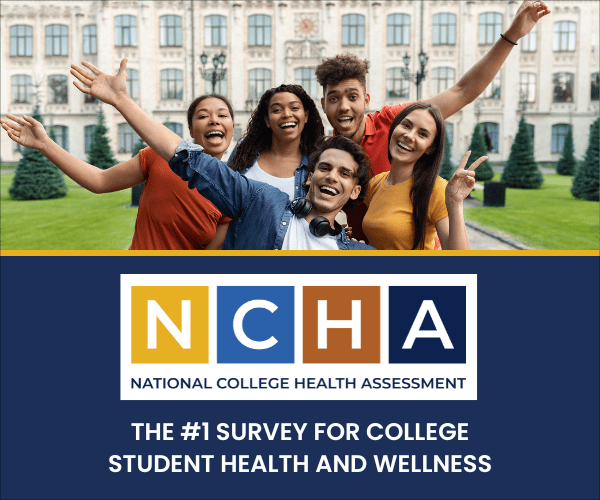Dear Members of the American College Health Association,
During the 2020-2021 year, ACHA President Kim Webb appointed the Racial Marginalization and Health Inequities Task Force. This group was asked to begin the work of helping ACHA as an organization move forward. They produced a comprehensive report with data and recommendations. This report was reviewed during the Spring 2021 board meeting and accepted unanimously by the board. Since that time, the executive committee began the work to address the recommendations.
The following is the board response to the RMHI report that outlines immediate and long-term actions that ACHA will begin. Our response to the report has been organized in alignment with the three core ACHA pillars—Education, Advocacy, and Research. Importantly, we have made the decision to add a new fourth core pillar: Justice, Equity, Diversity, and Inclusion (JEDI).
M. Scott Tims, PhD, CHWP
President, American College Health Association
On behalf of the ACHA Board of Directors
Education
The ACHA Annual Meeting is a central experience for members of ACHA members. The 2022 Program Planner and the Chief Program Officer of ACHA implemented significant changes to the program planning process, including:
- De-identifying proposal submissions to limit preferential treatment to known speakers and institutions
- Adding questions in the Call for Programs submission forms asking whether presenter is from an HBCU or other minority-serving institution so more proposals from those schools can be included at the Annual Meeting
- Changing how submissions were asked to address diversity; presenters are asked to share how their session addresses equity, defined as the systemic social, economic, demographic, cultural, and/or geographic policies and practices that that impede marginalized populations from achieving health outcomes
Advocacy
- The ACHA National Office will develop a health equity resource page for ACHA members. The page will focus on national efforts around advocacy and health equity needs of college students.
- A goal for the 2022 Annual Meeting is to create affinity spaces where members can be in community with others who share their identity to discuss topics related to inclusion, diversity, equity, and access. The purpose of these groups is to explore how their identity impacts their work and the field of college health. As these groups begin, further goals will be identified for engagement beyond the annual meeting.
- Past President Kim Webb will work with the Chief Program Officer to further develop the mentoring program to better align to membership needs and addressing JEDI.
- ACHA is currently developing an advocacy policy platform to include the following:
- Support for policies that promote justice, equity, diversity, and inclusion on college campuses.
- Priority focus on issues that impact the most vulnerable and marginalized members of our communities, while defending our shared values of cultural inclusion, respect, equality, and equity.
Research
- CCHN continues its development; as we reach a point of offering output, where possible we will include information addressing BIPOC and other marginalized groups. Specifically, CCHN will be asked to review their work for opportunities to address health equity issues.
- The ACHA Chief Research Officer is developing a method to make disaggregated National College Health Assessment (NCHA) and other data collected on student populations standard in published reports to members.
- ACHA will develop and implement a membership survey that assesses membership needs, with special attention to the needs of BIPOC individuals.
- The new ACHA CEO implemented a staff survey shortly after his start and is actively working with national office staff to address their needs.
Justice, Equity, Diversity, and Inclusion
- To understand and better support ACHA members, specifically BIPOC members, ACHA will implement a new Membership Task Force. The charges of this new task force include:
- developing recruitment strategies to ensure a diverse membership
- developing a retention strategy for diverse institutions and BIPOC members
- developing strategies for leadership opportunities for a more diverse ACHA membership
- creating a new and continuing member “Welcome Letter” that includes language addressing inclusion, diversity, equity, and access. The letter will provide information on reporting issues that of bias or discrimination within ACHA.
- The board of directors have discussed and agreed to develop a board-focused JEDI position. The board is currently pilot testing such a position, with the hope to make this permanent when the next strategic plan and bylaws update occurs.
- The board and CEO James Wilkinson have discussed the desire and support for a permanent JEDI-focused staff position in the national office. There is unanimous agreement regarding the need for a position. There is currently a budget review to assess funding to support and sustain a new position.
- The board advised the CEO to address JEDI issues within ACHA national office, which was supported without hesitation. The CEO actively engaged with a new HR firm to address current issues and to provide training and support to the national office staff.
- The RMHI Task Force charge has been updated by the current ACHA president, Scott Tims, to invite your careful review and revision of the current cultural competency statement, and to consider combining other statements into one, to reflect who we aspire to be and why. The revised statement should be provided to the board for review and approval by January 2022.
- The ACHA board completed DEI training at the first annual board retreat September of 2021. National office staff leaders were invited to attend. A comprehensive training plan for all members will be developed by the Membership Task Force.
- The ACHA CEO will be responsible for assuring national office staff will complete annual training on JEDI.




